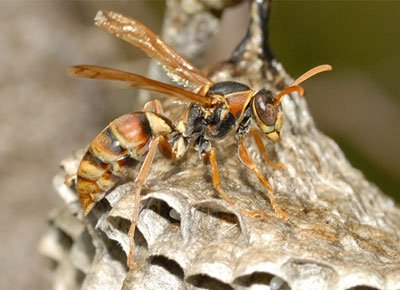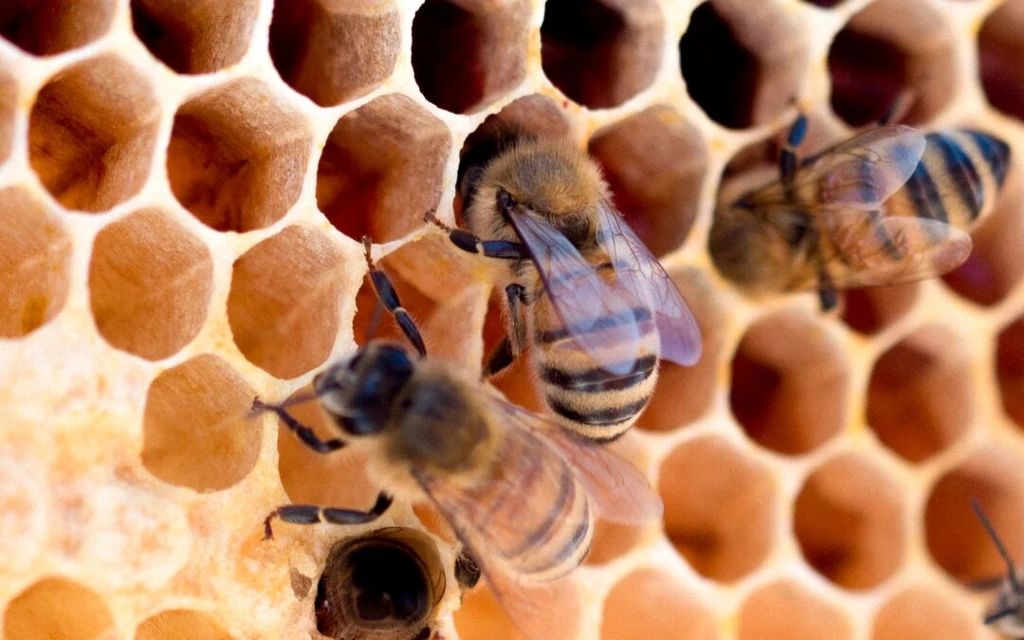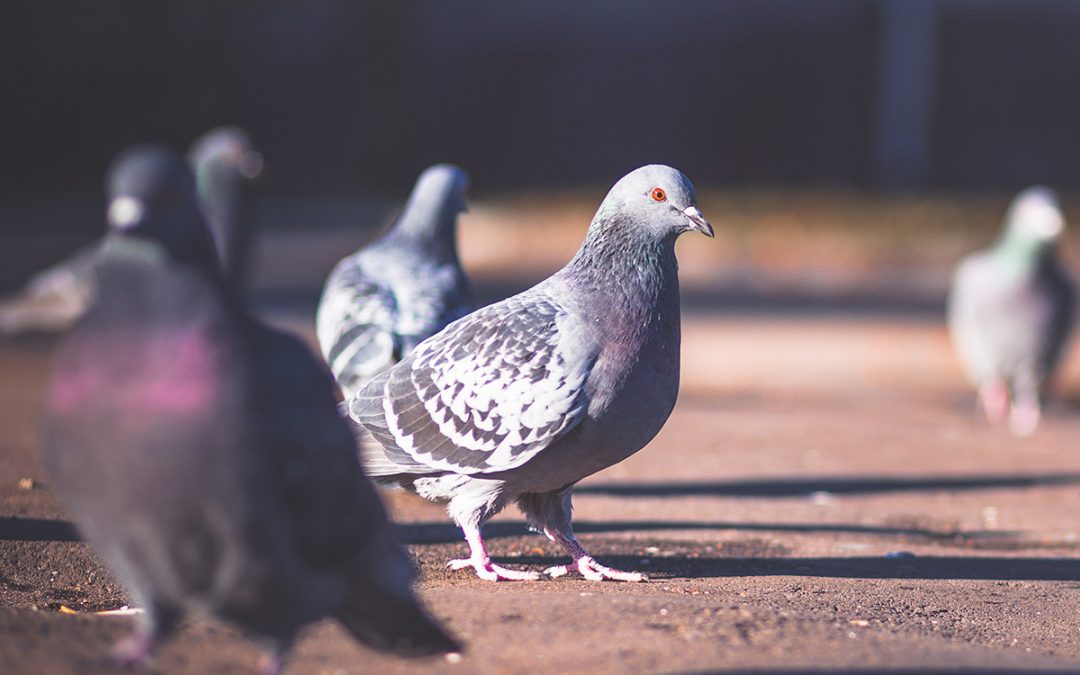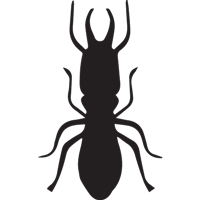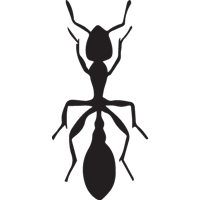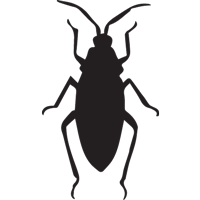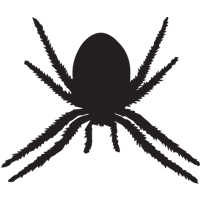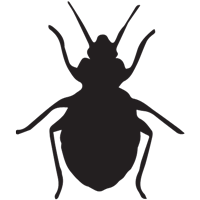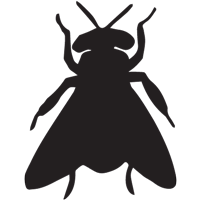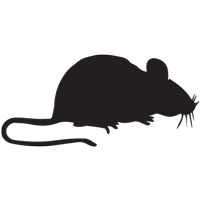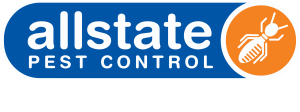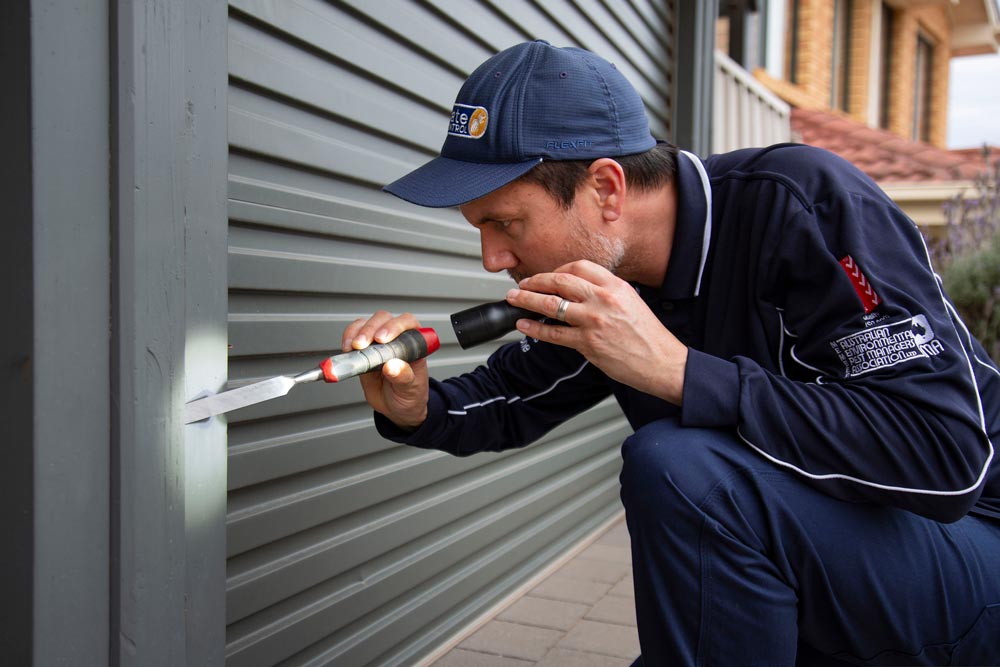
What do termite inspectors look for?
Although they are a threat all year round, termite outbreaks can be hard to detect. In fact, termites are thought to affect 1 in 5 houses in Adelaide, and cause thousands of dollars in damage that unfortunately isn’t covered by insurance. Learn how licensed termite inspectors identify the subtle signs of an outbreak in this Hivemind article.
What questions will this article answer?
Why are termite inspections important?
Termites cause expensive damage to homes that isn’t covered by insurance, and outbreaks can be difficult to detect without proper training and equipment.
Signs of a termite outbreak
They cause physical damage to homes and wooden structures, hollow sounds in timber, clicking sounds in walls, build mud tubes, and leave behind wings and droppings.
Types of termites
Subterranean termites, dampwood termites and flying termites (swarmers) behave differently, so treatment options can be tailored to maximise effectiveness.
What happens during a termite inspection?
Using specialised equipment, your licensed termite inspector will perform a comprehensive assessment inside and outside your home.
Professional termite control
We use Sentricon Always Active bait stations and Premise residual spray to effectively manage termites.
Choose Allstate for reliable and long-lasting termite protection
We’re available 24/7 to all suburbs of Adelaide for safe and targeted termite treatment.
Why are termite inspections important?
A notorious pest in Australia, termites are estimated to cause over $100 million in damage to homes every year, affecting 1 in 5 houses in Adelaide.
Sadly, as termite-related damage is considered to be preventable, it is not covered by home and contents insurance.
That’s why government guidelines recommend termite inspections at least once a year, and more frequently if your property is at higher risk of an outbreak.
Since the cost of a termite inspection is much lower than price of repairs, it’s worth making sure that your home stays protected.
At Allstate, our comprehensive termite inspections start at $200 per visit and are conducted by our fully licensed inspectors who will send you a report documenting all their findings.
Signs of a termite outbreak
Unless you have a severe infestation on your hands, it can be hard to tell if you have a termite problem.
At Allstate, our professional termite inspectors have experience, extensive training and the right tools to recognise the subtle hints of a termite outbreak. Here are examples of early signs of termites:
Damage to walls, floors, skirting boards, beams and ceilings
Wooden structures inside your home are vulnerable to termites, and you may notice cracks, blisters, warping and sagging. Paint might appear to have bubbling or have water-stain marks.
Damage to trees, outdoor wooden structures, sleepers and furniture
Some species of termites prefer living in tree stumps and wooden structures above the ground, hollowing out the wood inside. This means that trees and branches may topple, and sleepers may crumble, potentially causing a hazard.
Hollow sounds in timber
If you knock or tap your walls and hear an empty, hollow sound, this could be due to termites tunnelling through the insides of the timber.
Mud tubes
Subterranean termites build tunnels to protect them when they are foraging for food away from their nests, which are located underground. These tunnels are usually made of a mixture of saliva, dirt, wood and other debris and provide a safe pathway to travel.
Clicking sounds in the wall
As termites tunnel through wood, they make clicking sounds with their constantly chewing jaws and teeth. Soldier termites are known to knock their heads on wood to make clicking noises and warn other termites of impending danger.
Termite wings
Winged termites or swarmers leave the colony every few years when it is ready to expand, and start a new one elsewhere. They’ll find an old tree stump or wood pile to create a nest. After mating, they will lose their wings, and you may see these accumulating around your windows and doors.
Termite droppings
If you notice a build up of a fine, dark, powdery substance on your floors, this could be due to a termite outbreak.
Tiny holes in wooden structures
These could be entry points for termites.
Windows and doors become hard to open
Termite activity can increase the amount of heat and moisture within affected structures, such as window and doorframes, and result in expansion. This can mean that doors and windows become hard to open.
Handle termites fast. Speak to an expert today.
 or
or
Types of termites
It’s helpful to know what types of termites are responsible for a termite outbreak, as they all behave differently. This can help us come up with a targeted treatment plan that effectively preventes the termites at their source, as quickly as possible.
Subterranean termites
With a preference to nest underground as their name suggests, subterranean termites thrive in moist conditions. They are 1/8 to 1 inch long and yellow to dark brown in colour. You can also find them in trees, dead stumps, and buried wooden poles and sleepers.
Dampwood termites
Found mainly in moist areas with decaying wood, dampwood termites thrive in tree stumps, logs and buried wooden poles such as fence posts. They are usually 1/2 to 5/8 inches long, with a creamy white to brown colouring.
Flying termites
Also known as swarmers, you’ll know that there is a mature colony within 100m if you see winged termites.
What happens during a termite inspection?
No matter the size of your property, your licensed Allstate termite inspector always has the right tools and knowledge conduct a thorough assessment inside and outside. They will also assess how well your current termite protection system is working.
Termite detection equipment
To help identify early signs of a termite outbreak, our termite inspectors use the following devices:
- Borescopes assist with taking photographic evidence of termite activity within timber structures
- Moisture meters can pinpoint areas with a higher than normal moisture content
- Movement detectors can locate active termites
- Sounding tools are tapped against timber structures to check their integrity
Physical inspection
Our termite inspectors will pay close attention to the following areas of your property, which are known to be popular spots for termite activity:
- Timber beams
- Interior rooms, covering the walls, floors, ceilings, door and window frames, skirting boards and cupboards
- Subfloors
- Outdoor/yard inspection, including the perimeter of the house, garden beds, sleepers, woodpiles, trees, stumps and wooden fencing
- Interior and exterior sections of outbuildings
Don’t delay your termite inspection. Speak to an expert today.
 or
or
Professional termite prevention
Treating a termite outbreak happens over a period of time and requires patience. At Allstate, we use modern treatments with a proven effectiveness against termites.
Sentricon Always Active bait stations
Positioned 30cm away from your house, with each station 3m apart, Sentricon bait rods are positioned underground. They are laced with a termiticide that doesn’t harm pets or other wildlife, making them both safe and environmentally friendly.
Premise liquid spray
For large areas that have a significant amount of termite activity, we recommend a residual treatment spray as a fast and effective option to remove termites.
Choose Allstate for reliable and long-lasting termite protection
A termite outbreak can be stressful and expensive to fix, so we understand how important it is to prevent it from happening in the first place. That’s why yearly inspections by licensed termite inspectors can be extremely valuable.
Established in 1986, Allstate has been carrying out comprehensive termite inspections in homes and businesses across all suburbs of Adelaide for over 35 years. Using modern technology, our team is fully equipped and highly trained to assess properties of all sizes, inside and out.
Available 24/7 for urgent callouts, our inspections are covered by competitive warranties. You can even arrange for a payment plan, so there’s no need to delay your next termite inspection. Safeguard your home from termites today.


